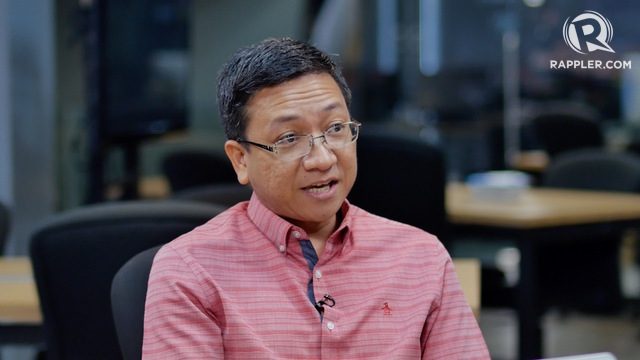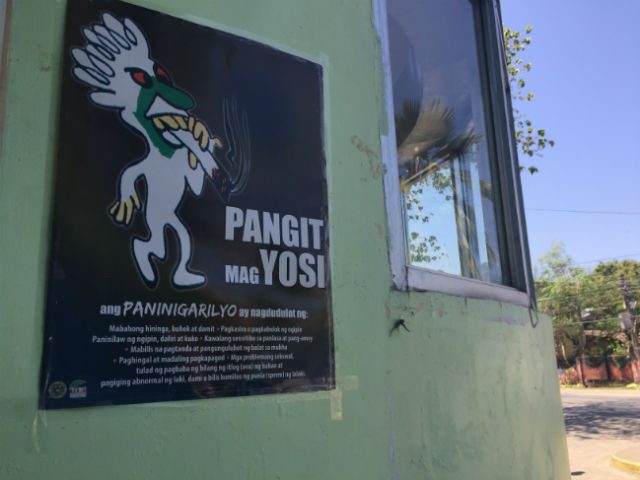SUMMARY
This is AI generated summarization, which may have errors. For context, always refer to the full article.

PART 1: Tobacco-producing LGUs in Ilocos Sur fail to implement smoking ban
MANILA, Philippines – Local health advocates praised President Rodrigo Duterte’s signing of the nationwide smoking ban in 2017. They said Executive Order (EO) 26 was a decisive step toward a smoke-free Philippines.
The EO bans smoking in enclosed public spaces and transportation, schools, and recreational facilities for minors, and also sets strict guidelines on designated smoking areas (DSAs).
A year after the EO’s effectivity, however, several local government units (LGUs) have only partially implemented the smoking ban or have not enforced it altogether.
Data from the Bureau of Local Government Supervision, under the Department of the Interior and Local Government (DILG), shows only 105 cities and municipalities in the country are following all provisions of the EO as of December 2017.
A total of 249 cities and municipalities have only partially enforced the smoking ban, while 450 are not implementing EO 26 at all.
There are 1,489 municipalities and 145 cities in the country.
Does the EO give the DILG any powers to admonish LGUs that do not enforce the smoking ban properly?
No, it does not.
The DILG, however, may file an administrative complaint against a governor, mayor, or even barangay captain before the Office of the Ombudsman for dereliction of duty.
Despite the large number of partially complying and non-complying LGUs, however, the DILG has yet to file any cases against local officials who have so far failed to enforce the smoking ban.
Just a reminder?
Rappler discovered that Candon City and Santa Cruz municipality in Ilocos Sur, two big producers of Virginia-type tobacco products, are among the LGUs that are only partially compliant with EO 26.
While they both have smoking ban ordinances, these LGUs have not properly convened their respective Smoke-Free Task Forces nor have they set up DSAs that follow the standards indicated in the EO. (READ: Fighting tobacco use through local legislation)
According to DILG Assistant Secretary and spokesperson Jonathan Malaya, compliance with the said two provisions of EO 26 are required.
“My understanding is that it is required…. Not having a DSA means the full extent of the EO was not followed because the EO simply does not wish to lower incidence of smoking among children and adults as well, but it also wants to make smoke-free public places,” said Malaya.
Ironically, the assessment by the DILG’s Compliance Monitoring Tool showed Candon and Santa Cruz have “full compliance” with EO 26, contrary to Rappler’s observations.
This puts doubt whether the 105 areas DILG assessed to be fully compliant with EO 26 are truly enforcing it properly.
“I think what needs to be done is to remind them again,” said Malaya when asked what the DILG can do to ensure LGUs like Candon and Santa Cruz will follow the EO.
This is due to the supervisory nature of the agency.
“The authority of the department is simply general supervision over LGUs because LGUs under the Local Government Code and even the Constitution enjoy local autonomy,” said Malaya.
“What we cannot do is suspend them unilaterally. We cannot subtitute their judgement with our judgement as opposed to control…. We cannot overturn decisions, lawful decisions of the mayor of the local government,” he added.
Limited powers
The DILG already reminded LGUs twice to follow EO 26 since its signing in May 2017.
Then-DILG officer-in-charge Catalino Cuy issued Memorandum Circular 2017-90 in July 2017 and Memorandum Circular 2017-147 in November 2017, both “enjoining” LGUs to “support” EO 26.
Both DILG memos said all local chief executives are “directed” to do the following:
- Cause the enactment of local policies, as may be warranted, particularly on the unlawful and prohibited acts under the EO
- Implement the standards, specifications, and putting up of signages for DSAs, as set forth in EO
- Strictly observe no DSAs in public places listed in the EO
- Ensure compliance of all persons-in-charge of their duties and obligations stated in the EO
- Develop, promote, and implement local smoking cessation programs consistent with the national smoking cessation program
- Encourage the participation of public and private facilities which may be able to provide for the requirements of the smoking cessation program
- Organize a local Smoke-Free Task Force to help carry out the EO’s provisions
- Provide funding for the EO’s implementation
- Exercise “appropriate and necessary” powers for the “efficient and effective” implementation of the EO
The second memo also mandates governors to ensure all cities and municipalities in their respective provinces comply with the said duties and responsibilities..
Penalties for smoking ban violators
EO 26 stipulates penalties for violators.
Section 6 says persons caught violating the EO’s provisions will be punished based on the penalties stated under Republic Act 9211 or the Tobacco Regulation Act of 2003.
Depending on the violation, a liable person may be imposed a fine anywhere between P500 and P100,000 with at least one year imprisonment.
Meanwhile, the Local Government Code’s penalties will apply to any governor, mayor, or barangay captain who “knowingly allow, abet, authorize or tolerate the prohibited acts in Section 3 or who otherwise fail to fulfill the duties and obligations enumerated in Section 5” of the EO.

According to lawyer Ann Mae Pedregosa of DILG’s Trial and Investigation Division, a local chief executive could be charged for gross negligence or dereliction of duty for failing to uphold EO 26.
The Local Government Code states an administrative case can be filed against an elective official of a province, highly urbanized city, or component city before the Office of the President. The jurisdiction falls under the Office of the President as well for administrative cases against any elective official of a municipality.
Administrative cases against barangay officials, meanwhile, can be filed before the Sangguniang Panlungsod or Sangguniang Bayan concerned, “whose decision shall be final and executory.”
“It will depend on the omission or commission of an act… If it’s grave, it would result to dismissal from public office…. If it’s just a case of simple negligence or misconduct, usually the punishment is suspension only,” Pedregosa said in Filipino.
Malaya said it is also up to the DILG’s discretion to file the administrative case against the local official directly before the Ombudsman.
But even if hundreds of LGUs are not enforcing the smoking ban EO, Pedregosa said her division has not been directed to launch any investigations yet.
“So far, there have not been any cases filed. Whenever there are investigations with regards to that, they will fall under my division,” she said.
A challenge for accountability
For Pedregosa, the limited powers of the DILG can be “challenging” at times.
“Because if we see an LGU as not compliant, remind them of their duties, and issue directives and show cause orders and yet they still do not heed our reminders, the most severe remedy we can take is to recommend a case should be filed against an LGU official,” said Pedregosa.
“That’s where the DILG’s powers end. It’s challenging for us,” she added.
It could take years for cases to be resolved by the investigating body concerned.
“They are not appointive officials. They are elected officials, so we can consider them as partners only,” Malaya said. “If after encouraging them or enjoining them, they still do not heed the memorandum circulars, only then do we resort to the filing of cases,” he added. – Rappler.com
This story was produced under the “Mga Nagbababang Kuwento: Reporting on Tobacco and Sin Tax Media Training and Fellowship Program” of Probe Media Foundation with support from the Campaign for Tobacco Free Kids.
Add a comment
How does this make you feel?





There are no comments yet. Add your comment to start the conversation.